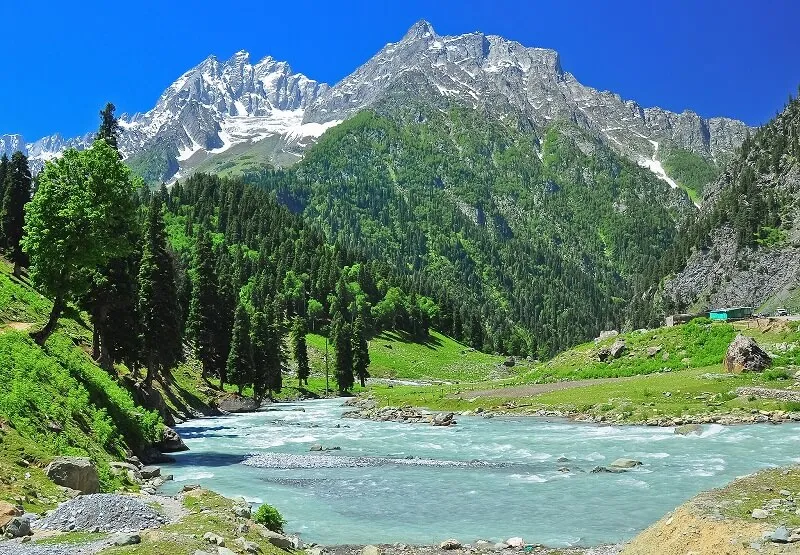Traveling from Islamabad to Hunza by train is a unique and budget-friendly option for adventure seekers. While there is no direct train route to Hunza, you can combine train and road transport to reach this breathtaking valley. Here’s a complete guide on how to travel from Islamabad to Hunza by train, ensuring a smooth and comfortable journey.
Step-by-Step Guide to Reaching Hunza by Train
1. Train from Islamabad to Rawalpindi
Islamabad does not have a major railway station, so travelers first need to reach Rawalpindi Railway Station. You can take a taxi, ride-hailing service, or local transport to get there in about 30–40 minutes. Rawalpindi Railway Station is well-connected to various cities in Pakistan and serves as a hub for travelers heading north.
2. Train from Rawalpindi to Gilgit
While there is no direct train service from Rawalpindi to Gilgit, you can take a train from Rawalpindi to another major city like Peshawar or Lahore and then continue your journey by road. The Pakistan Railway network connects Rawalpindi to various cities, but the preferred option for Hunza-bound travelers is a road journey beyond Rawalpindi.
For those who prefer train travel, taking a train from Rawalpindi to Peshawar or Lahore and then arranging private transport to Hunza is an alternative. Although time-consuming, it allows you to explore multiple cities along the way.
3. Road Journey from Gilgit to Hunza
Once you reach Gilgit, the nearest major city to Hunza, you need to travel by road. You can take a public bus, a shared van, or a private taxi. The drive from Gilgit to Hunza takes approximately 2–3 hours and offers stunning views of the Karakoram Range and Hunza River.
Hunza is accessible via the famous Karakoram Highway, one of the highest paved roads in the world. The highway passes through breathtaking landscapes, making the road journey as much a part of the experience as the destination itself.
Alternative Travel Options
Since there is no direct train to Hunza, here are some alternative ways to reach your destination:
By Air
For those looking to save time, flights from Islamabad to Gilgit are available. Pakistan International Airlines (PIA) operates flights that take around 1 hour. However, due to unpredictable weather conditions, flights may be delayed or canceled. If you choose this option, always have a backup plan in case of flight disruptions.
By Bus
Direct bus services like NATCO (Northern Areas Transport Corporation) and other private companies operate between Islamabad and Hunza. Buses are an economical option and provide a comfortable journey through scenic routes. The bus journey typically takes 18–20 hours, depending on road conditions.
By Private Car
Hiring a private car allows for a flexible and scenic road trip through the Karakoram Highway. Many tour companies offer rental services with experienced drivers familiar with the mountainous terrain. This is an excellent option for travelers who prefer a personalized and comfortable journey.
Things to Know Before Traveling to Hunza
Weather Conditions
The weather in Hunza varies by season. If you are traveling in winter (November–March), be prepared for snowfall, roadblocks, and extremely cold temperatures. Summer (May–September) is the best time to visit as the weather is pleasant and roads remain open.
Best Time to Travel
The ideal time to visit Hunza is from April to October. This period offers pleasant weather, clear roads, and vibrant natural beauty. Autumn (September–October) is particularly stunning, with golden and red hues covering the valley.
Travel Permits
Foreign travelers may require special permits to visit certain areas in Gilgit-Baltistan. It’s recommended to check with local authorities or travel agencies before planning your trip.
Must-Visit Places in Hunza
Hunza Valley is home to some of the most picturesque and historic sites in Pakistan. Here are a few must-visit spots:
- Baltit Fort – A centuries-old fort offering panoramic views of the valley.
- Altit Fort – One of the oldest forts in Pakistan, showcasing Hunza’s rich history.
- Attabad Lake – A stunning turquoise lake formed after a landslide in 2010.
- Passu Cones – Majestic, uniquely shaped mountain peaks near Gulmit.
- Eagle’s Nest – A viewpoint offering breathtaking sunrise and sunset views over Hunza.
- Khunjerab Pass – The highest paved international border crossing between Pakistan and China.
FAQs
1. Is there a direct train from Islamabad to Hunza?
No, there is no direct train to Hunza. Travelers need to take a train to a nearby city like Rawalpindi, Lahore, or Peshawar and then continue by road.
2. How long does it take to travel from Islamabad to Hunza?
The total travel time depends on the mode of transport. By road, it takes around 18–20 hours. If you take a flight to Gilgit, the journey can be completed in about 4–5 hours.
3. What is the cheapest way to reach Hunza from Islamabad?
The cheapest way is to take a bus from Islamabad to Hunza, as train travel requires additional road transport, increasing the cost.
4. Are there luxury travel options available for this route?
Yes, travelers can opt for private car rentals, business-class bus services, or luxury flights to Gilgit for a more comfortable journey.
5. Is it safe to travel from Islamabad to Hunza?
Yes, the route is generally safe for travelers. However, it is advised to check weather conditions, road status, and travel advisories before planning your trip.
Final Thoughts
While you can’t take a train directly to Hunza, combining a train journey with road transport makes for an exciting and budget-friendly adventure. Whether you choose a bus, flight, or private car, each travel option offers a unique experience. Plan ahead, choose the best route, and get ready to experience the breathtaking beauty of Hunza Valley!






